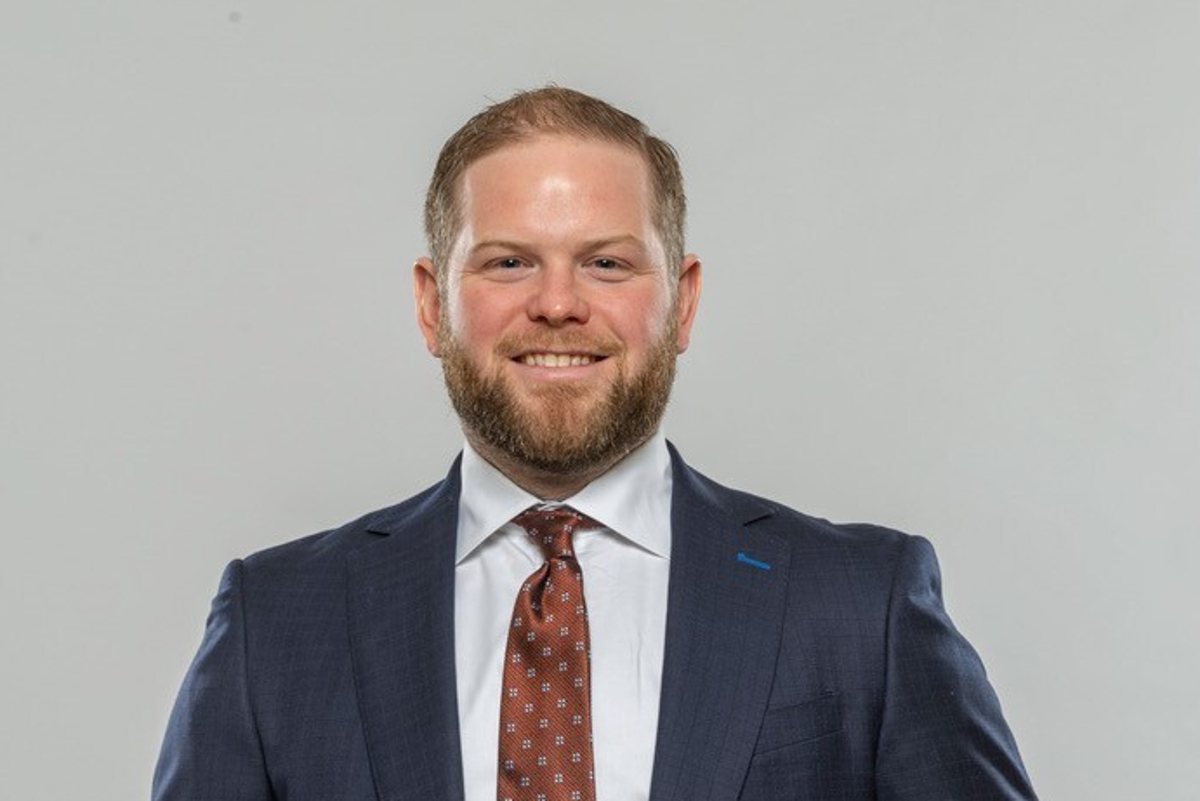Four days after hiring him as their new head coach, the San Jose Sharks held an introductory press conference for Ryan Warsofsky at SAP Center on Monday, June 17.
The event was a fairly straightforward affair, and the Sharks are clearly in the early stages of the transition to a new coaching regime. Avoiding many in-depth discussions of tactics and on-ice strategy, Warsofsky and general manager Mike Grier stated that those topics will take shape in future team meetings and be revealed to the public at a later time. While the schematics are still a work in progress, Warsofsky and Grier spoke at length about two of the main features they believe to be crucial to coaching: passion for the game of hockey and communication with players. With the press conference concluded, it’s obvious those traits played a major role in San Jose’s coaching search, and they may be especially important to a team like the Sharks.
Sharks Were Looking for Those Qualities
Grier understandably didn’t go into much detail about the specifics of who he interviewed for the role apart from Warsofsky and Ontario Reign head coach Marco Sturm. However, he did mention that throughout his interviews, he was looking for an enthusiastic coach who could communicate well.
“You can see the passion, the emotion that Ryan has,” Grier said. “That meant a lot to me and the staff. At the end of the day, that’s what matters. You need to care, you need to have passion. You need your team to play that way. It’s an 82-game season. It’s a long season and we have to play with emotion and play with energy and I think those things really resonated with me.”
Bringing a passion for hockey will be crucial to the Sharks. It’s certainly vital for any NHL team, but the Sharks are preparing for a season during which they will likely have many difficult stretches, and could easily lose focus as a result. As such, maintaining enthusiasm for the sport will be particularly important in San Jose. This mentality starts with the head coach, and Grier believes Warsofsky is the right person to guide the team in this way.

As for the communication aspect, Grier cited Warsofsky’s work as a Sharks assistant during the 2023-24 season. Warsofsky focused on the team’s defense, necessitating his involvement with several young defensive prospects.
“I think if you ask Henry Thrun and Ty Emberson and Shakir [Mukhamadullin] when they were up here, the care he gave them each and every day and the ability to keep working and developing them and spending time with them through video and on the ice,” Grier said. “It was a long season. It would have been easy just, as soon as practice was over, to hit the road and get out of there. But he never did that. He never hid from the situation we were in and he kept the time in and work in with these kids.”
Related: Sharks’ Top-5 Farm System Reflects Increase in Prospect Talent
Between his tenure with the Sharks over the last two seasons and his time in the American Hockey League, Warsofsky already has plenty of experience working with young players. He’ll need it even more next season, when the roster will likely get even younger than it already was. He’ll need to connect directly with a number of players who are still developing, as opposed to veterans who may be more self-sufficient. Grier set out to find someone capable of doing so, and he found that person already within his organization.
Warsofsky Shows Passion, Emphasizes Communication
Throughout his own remarks at the press conference, Warsofsky demonstrated the importance he places on passion and communication himself. His zeal for hockey shone through during his opening statement, when he became audibly emotional while discussing the people who helped him reach an NHL head-coaching position.
With regards to communication, Warsofsky agreed with a reporter who suggested that his status as the league’s youngest head coach could be beneficial to a young roster.
“First and foremost, I’ve got to understand what they are as human beings,” Warsofsky said. “Are they a visual learner? Can they look through video? Does there need to be on-ice instruction? That’s going to be my job with the younger generation that’s coming, and I really do feel like I’m not that far removed from them, so I understand where they’re coming from.”
At 36 years old, Warsofsky is not only the NHL’s youngest coach but also around the same age as a number of his players. He should be able to relate to them in a way that an older coach might not, and can understand the challenges young people face today. He made note of the role that social media plays in the modern NHL, and talked about pressures prospects can face from agents or family members. His answer was a brief but meaningful glimpse into the ways that he’ll engage with young players on things that have very little to do with hockey. This kind of communication is an overlooked part of being a coach, and it’s something Warsofsky will need to bring with him as Grier trusts him to usher in a new wave of Sharks success.
